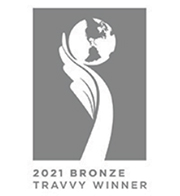Every Trip Offset: FAQs
What is carbon offsetting?
Where does the money from carbon offsetting go?
How does the climate projects reduce carbon emissions?
What are the impacts of the climate projects?
How do we calculate the amount to be offset and how is it paid for?
Why isn't each trip calculated individually?
What if I book my flights elsewhere?
What if I'm travelling with children?
Why doesn't the project benefit people in Japan?
Why does InsideJapan still use carbon offsets?
Who are Climate Impact Partners?
-
What is carbon offsetting?
Carbon offsetting is a way to compensate for greenhouse gases (most commonly CO2) being produced in one area, by helping to fund a project which reduces them in another area. Offsetting projects can reduce emissions in a number of different ways, from supporting the provision of renewable energy to protecting forests.
For example, our trips (including flights and ground arrangements) emit on average 4 tonnes of carbon. We balance out these carbon emissions by funding verified sustainable development projects across Asia, which provide an equivalent reduction in CO2 production.
-
Where does the money from carbon offsetting go?
Towards fantastic, verified climate projects, which deliver action now. Through our partnership with Climate Impact Partners, we offset all new bookings by supporting climate projects across Asia - like the award-winning biogas project in rural Vietnam and renewable wind power in India.
-
How do the climate projects reduce carbon emissions?
We have been supporting climate projects across Asia through verified offset schemes since 2016. In 2023, we supported a renewable wind power project in India.
The project has contributed to the installation of 26 wind turbines and their maintenance in three states across India, collectively producing 25.5 Megawatts of renewable energy (one megawatt = one million watts).
This energy is used to replace that produced by fossil fuels, meaning renewable energy investment is a fast and effective solution to reduce emissions from energy generation.
70% of electricity in India is currently supplied by fossil fuels. Renewable energy projects such as this are vital to support India overcome its energy shortage, while also reducing carbon emissions.
The carbon offsets in the project are verified under the CDM or VCS.
-
What are the impacts of the climate projects?
We have been supporting climate projects across Asia through verified offset schemes since 2016. In 2023, we supported a renewable wind power project in India.
In addition to reducing carbon emissions, the wind farms contribute to the local economy and livelihood of residents through the creation of jobs, both temporary during construction and permanent for operation and maintenance. They also mitigate exposure to harmful gases that would otherwise be produced, such as SOx and NOx.
The Wind Power Project supports 4 of the 17 UN Sustainable Development Goals:
- Affordable and clean energy
- Decent work and economic growth
- Industry, innovation and infrastructure
- Climate action
-
How do we calculate the offset amount and how is it paid for?
Carbon measurement is complex. That’s why we work with carbon experts ecollective to measure our entire carbon footprint as a company.
We take accurate measurements of every single trip, including the flights, accommodation, transport, experiences and meals included, as well as all the operational emissions that go into making that trip happen. We then target the largest emitting areas to try to reduce our footprint in the future.
We also measure the average emissions of our trips, and work with Climate Impact Partners, specialists in carbon market solutions for climate action to help us ensure each trip is fully offset through financing climate projects.
-
Why isn't each trip calculated individually?
We take accurate measurements of every single trip, including the flights, accommodation, transport, experiences and meals included, as well as all the operational emissions that go into making that trip happen. As this takes a lot of time to calculate, we do this at the end of every year, and are currently unable to do it in ‘real-time’ to provide customers with the emissions of their individual trip.
We believe in being transparent with our customers, and are working on carbon-labelling our example itineraries and Small Group Tours, with an ultimate goal of every tailormade trip being labelled. Give all the different variables that go into making a trip happen, we will never be 100% accurate, but will use the information to make better decisions and reduce our footprint.
-
What if I book my flights elsewhere?
Even if you book your flights elsewhere, we will include the amount for offsetting your flights in your trip price, so you don't have to do any extra work to know that your trip is carbon neutral.
-
What if I’m travelling with children?
Anyone over the age of 18 months will have the carbon offset fee included in their booking.
-
What if Iím re-booking a trip from before 2021?
The fee is included in all new trip prices, so if you are rebooking you will not have the carbon offset fee included in your trip. However, if you would like to offset your booking to make your trip carbon neutral, please let us know and we will be happy to add this on for you.
-
Why doesn't the project benefit people in Japan?
Climate Impact Partners, specialists in carbon market solutions for climate action, do not currently operate any projects in Japan. We ensure we support sustainable development projects across Asia, including in many of the destinations of our sister brand, InsideAsia tours.
-
Why does InsideJapan still use carbon offsets?
We see the focused attention on climate action and carbon offsets as a positive thing, as it shows our growing collective climate ambition. Criticism and debate is needed if we’re to continue to find better solutions for both people and planet.
We still use offsets for three main reasons:
- It delivers real action now – to date the voluntary carbon market (VCM) has delivered 500 million tonnes of carbon dioxide equivalent reductions and continues to invest in new technologies, create green jobs, protect nature, support our move to a global low carbon economy, conserve and restore biodiversity, and provide health benefits to communities around the world
- It is recognised as an essential climate tool – organisations including WWF and the Science-Based Targets Initiative, endorse the role of quality carbon credits as part of a robust climate strategy.
- We are improving as we go – we will not meet our global climate goals if we stop funding these critical, high-impact projects because we are waiting for perfect solutions. We need all tools in our toolbox, delivered at scale, in order to tackle the climate crisis.
In addition to these beliefs, we always see the climate projects we support through offsets as part of our wider efforts to measure and cut down on our carbon emissions. And when we choose to support a project, we work with Climate Impact Partners to ensure we have the highest level of assurance about the impact and additionality it will deliver.
-
Who are Climate Impact Partners?
Climate Impact Partners, specialists in carbon market solutions for climate action are the UK's highest-ranked B Corp, and we've partnered with them to help us develop a robust and effective programme. Through this partnership we support the Vietnam Household Biogas Project, which is verified by the Gold Standard - one of the leading carbon standards globally.
 Australia
Australia
 USA
USA
 Inside Japan UK office
Inside Japan UK office Inside Japan US office
Inside Japan US office Inside Japan Australia office
Inside Japan Australia office Inside Japan - Japan office
Inside Japan - Japan office



























